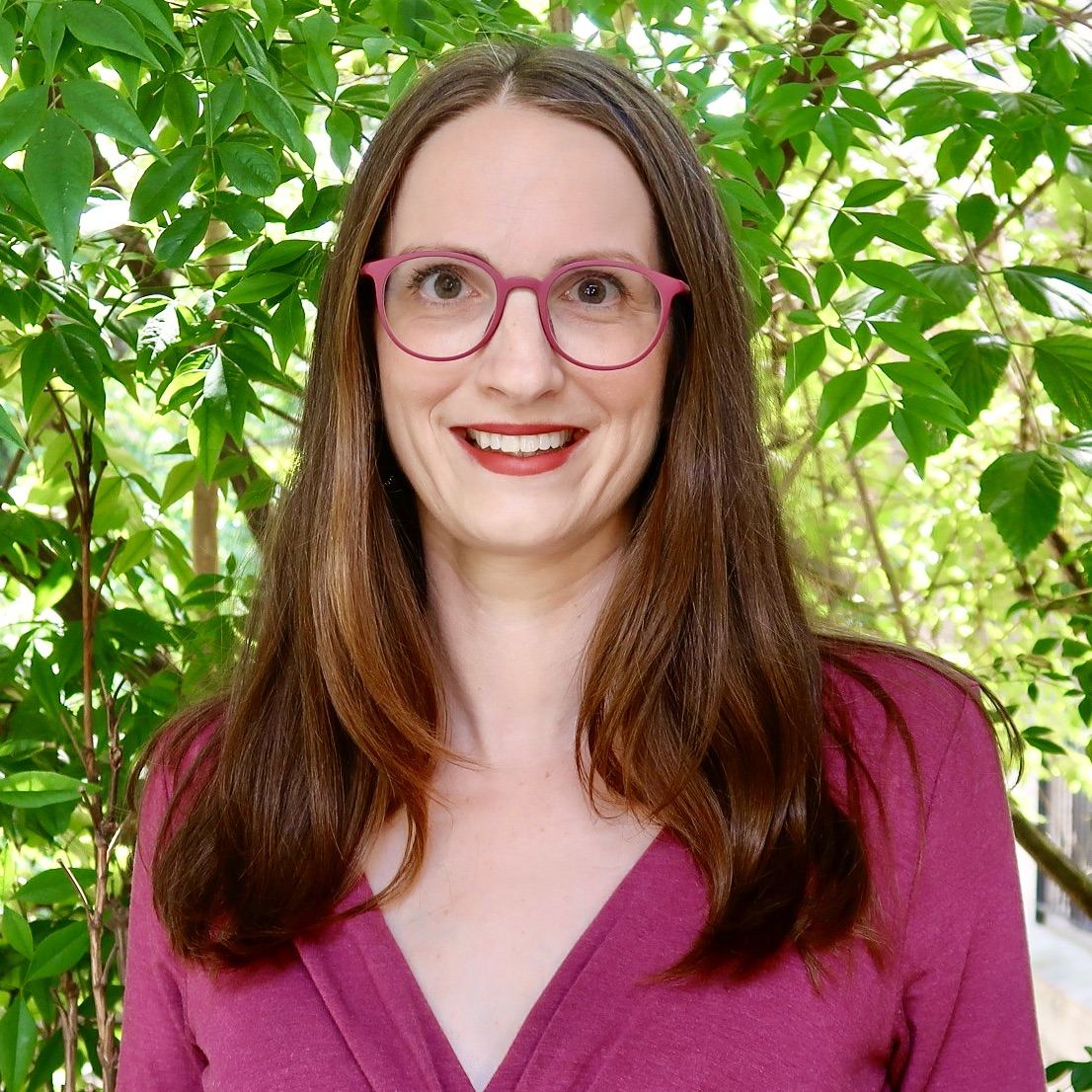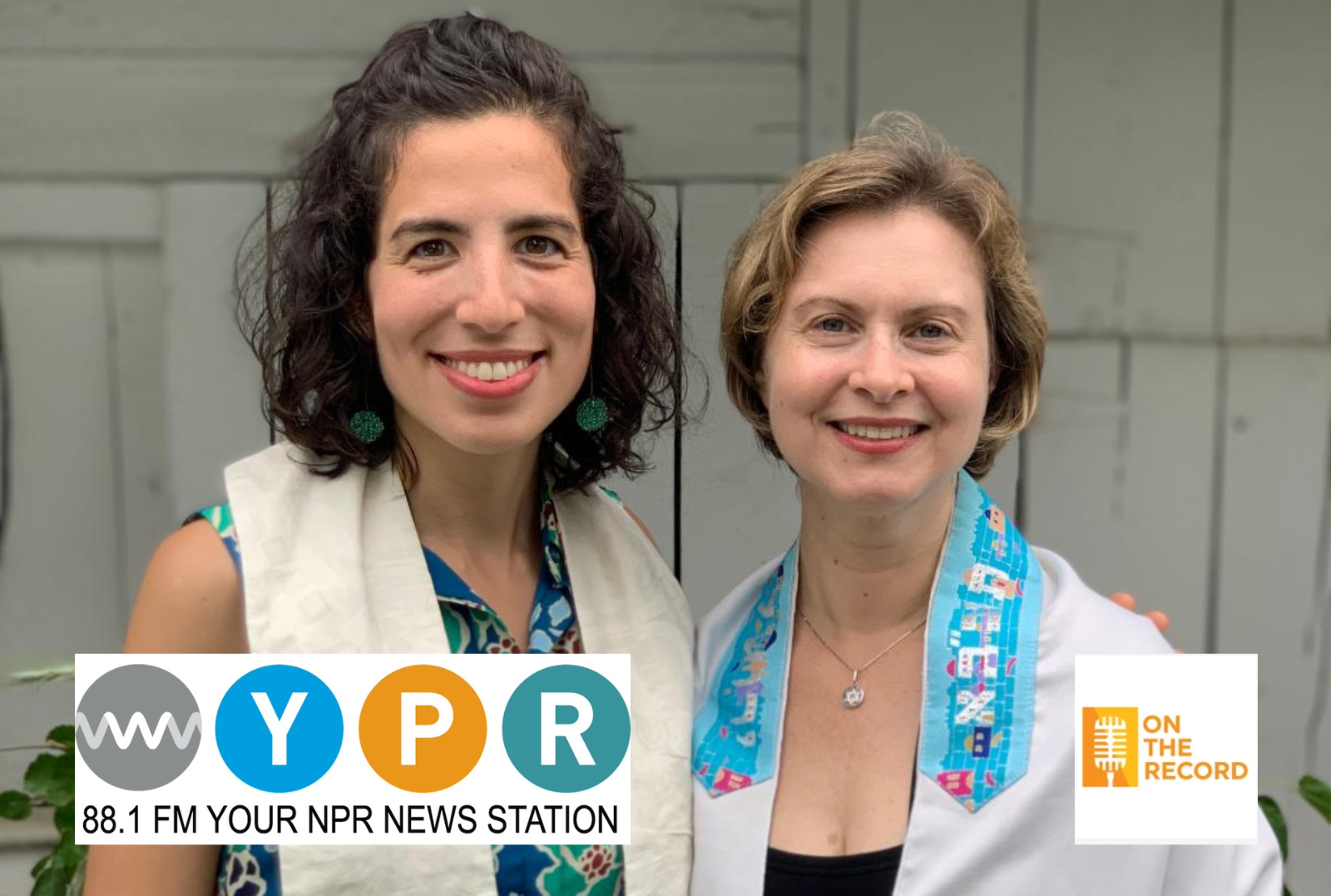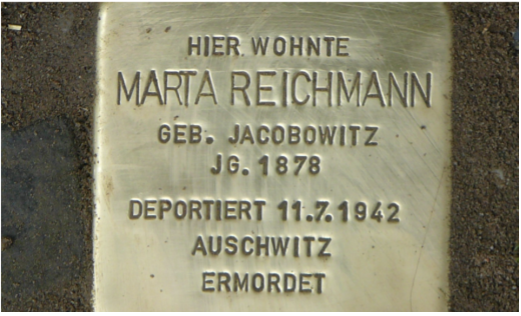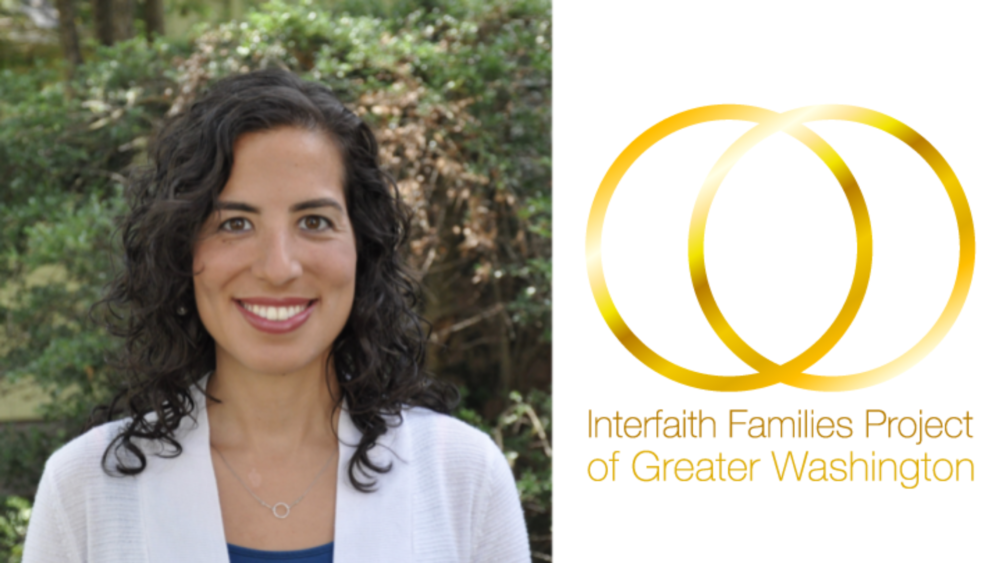This month we are doing a special Q&A interview with our (mostly) new Rabbi, Debbie Reichmann, and our (really) new Reverend, Samantha Gonzalez-Block. They’ll answer five of your most important questions, like what brought them to IFFP, how they work with interfaith families, and more! You can also learn more about each of them by reading their bio pages (linked above).
How did you come to IFFP? What brought you here?
Debbie: I was introduced to IFFP by Rabbi Harold White when I worked with him at Georgetown University. After a number of years of performing various life-cycle events–most of them interfaith–and realizing that this was only the tip of the iceberg, I jumped at the chance to serve as IFFP’s rabbi.
Sam: I first became aware of IFFP when I read Sue Katz Miller’s book Being Both. I remember that it was a pivotal moment both personally and professionally. I could not believe that a place existed for people and families that looked like mine. Furthermore, I knew that I wanted to do everything I could to help IFFP and communities like this one thrive. I later met Sue when Religions for Peace invited us to take part in an interview regarding interfaith families. After our conversation, I was invited to come speak at IFFP. The experience further solidified my commitment and joy to dedicating my ministry to serving interfaith individuals and families. When the Interim Christian Leader position became available, I felt called to take this literal “leap of faith” and accompany IFFP into its next wondrous chapter.
Why do you want to work with interfaith families?
Debbie: Seeing the experiences of my own extended family, and that of some of the students I was privileged to work with at Georgetown, I came to realize that marginalizing interfaith families was at best, counterproductive and at worst, a source of deep pain. Being able to say “Yes, and…” offers so much more opportunity not only for the interfaith family but for the greater religious communities. It was based on this realization that I became a rabbi.
Sam: In a world rife with division, I feel like interfaith families and individuals are inherent bridge-builders and peace-makers. Yet, far too often, they can find themselves excluded from key interfaith conversations, traditional faith communities, and even their own families. I want to create a space at the table for interfaith families. I want to empower fellow clergy to walk alongside them. I want to embolden couples to see their union as a blessed opportunity and see their children as beacons of hope. I want to do all that I can to create a space where interfaith families and individuals can feel spiritually nourished, connected to community and assured that they belong – just as they are.
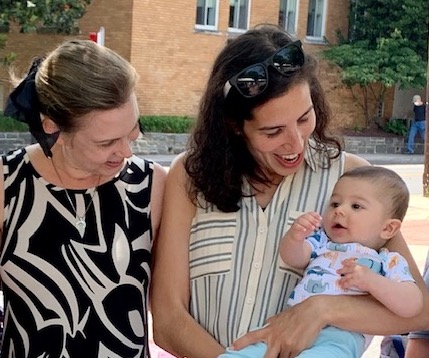
How does your individual religious tradition inform the work you do with IFFP?
Debbie: I come from an immigrant family. My grandparents fled Europe due to WWII and ended up in Chile. My parents grew up in Chile, and after I was born, we moved to the U.S. Finding that our family was scattered across the world, and not sharing a single language among us, my parents emphasized Judaism as the source of family connection. I went to Jewish Day School, and we attended a Conservative synagogue, at home we were considerably less observant than many of my peers, but the emphasis was on BEING Jewish not practicing Judaism. Since I am far less focused on religious “should and should nots” I am more open to finding the similarities and connections among religions and celebrating the diversity in them.
Sam: I grew up in an interfaith, multicultural, bilingual home, with a Jewish father of Eastern European descent and a Presbyterian Puerto Rican mother. I often say that interfaith dialogue at our house was “dinner.” We practiced both traditions (and I still wholly identify with each of them). That said, we did not know other families that looked like ours. Moreover, most people could not understand how I could possibly identify with both Judaism and Christianity. My background makes me feel especially passionate to support and invigorate families as they navigate practicing and sharing their traditions, as well as nurturing individuals as their personal beliefs take shape.
What do you want interfaith families to know about you?
Debbie: I used to be a lawyer, and after 10 years of trying to like my job(s) I finally relented and looked for something else. It took a little time, but I found my way to being an interfaith rabbi. This life experience, along with many others, informs my worldview and my understanding of the complexities and challenges of life and helps me be accessible to others and to appreciate what others bring to the table.
Sam: I have had a number of careers and experiences before finding my way into ordained ministry. I have worked as a Middle School teacher in Harlem, a Communications Officer at the United Nations, an Academic Advisor at New York University, a theologian and women’s rights advocate in Chile, and a Salsa dance instructor all over the world. I love welcoming new people into my life and finding creative ways to connect across languages, barriers, and generations. I also have a deep passion for pastoral care, and give thanks for opportunities to sit alongside others during vulnerable moments.
What do you think the future looks like for IFFP/interfaith families?
Debbie: Interfaith families are making up a larger and larger percentage of all Americans. IFFP’s past quarter century of experience will place it in a unique place to help people not reinvent the wheel, but also to innovate and experiment. IFFP is a warm, loving, and caring community with room to grow. I am excited to be a part of it!
Sam: Building on its rich foundation set by the founding mothers and fathers, Rev. Julia Jarvis, Rabbi Harold White, and the dedicated members and staff, I hope that IFFP can continue to grow, stretch and inspire. I am excited for more interfaith families to feel connected to this place of welcome and celebration. I look forward to being on this glorious journey together!

